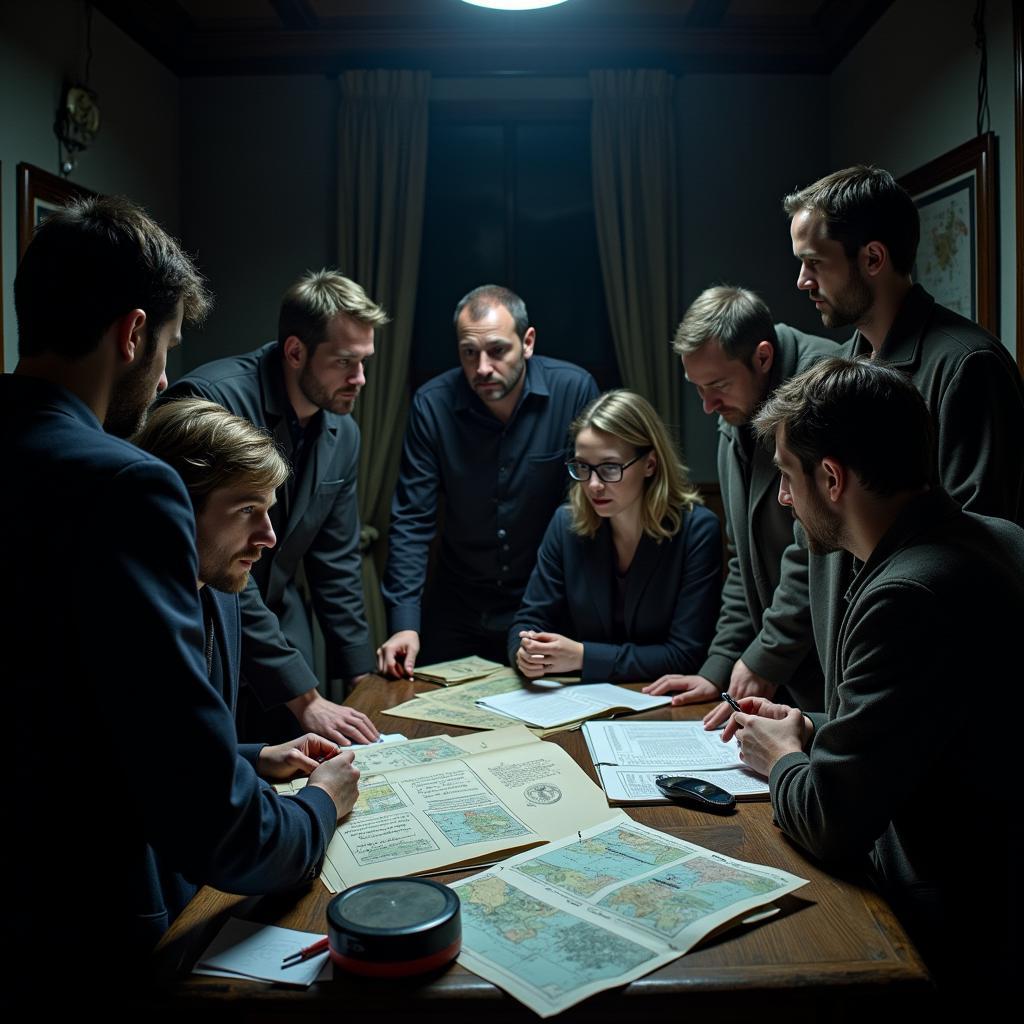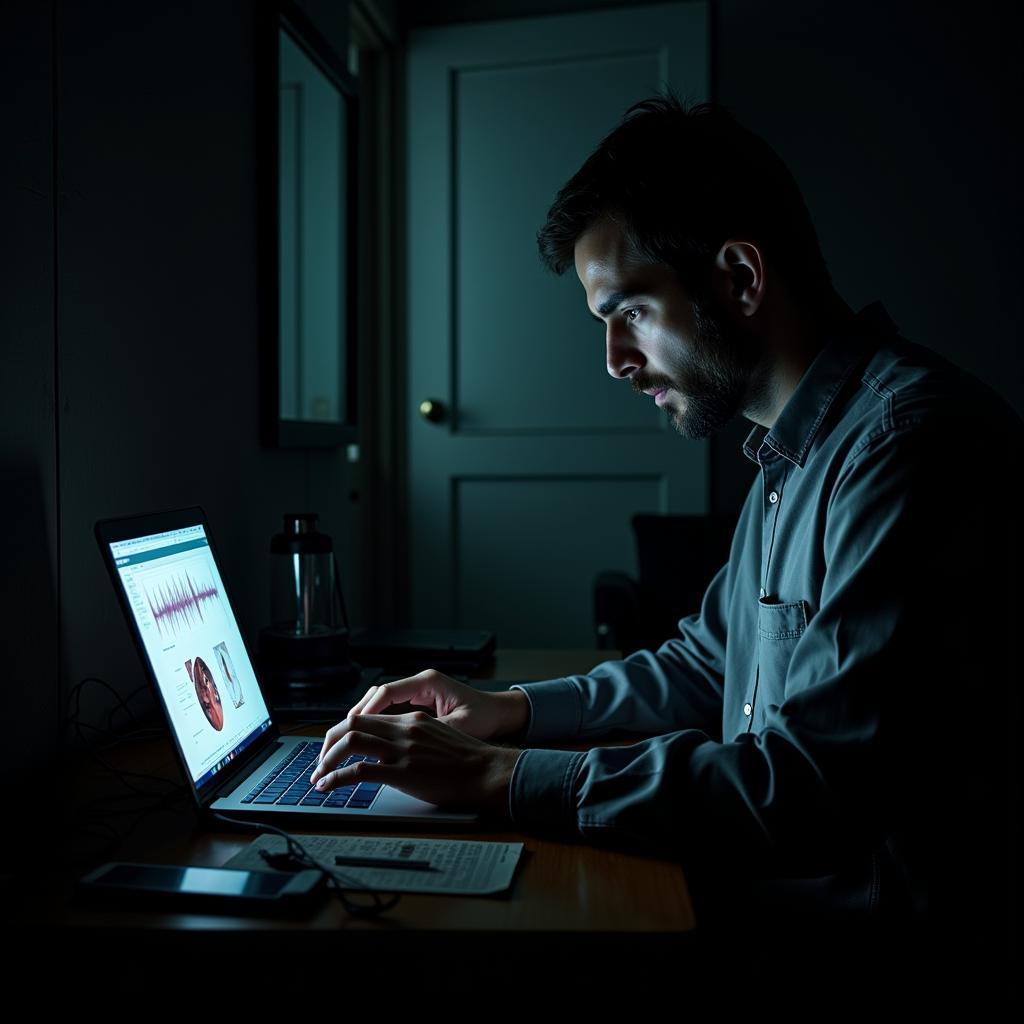Action Research Projects offer a powerful framework for investigating the unexplained, blending rigorous methodology with a spirit of open inquiry. Whether you’re a seasoned paranormal investigator or a curious newcomer, understanding the principles of action research can significantly enhance your explorations into the unknown. This approach empowers you to systematically examine paranormal phenomena, analyze your findings, and refine your investigative techniques. Just after you embark on your first action research project, you’ll discover a new dimension to exploring the supernatural.
What is an Action Research Project in Paranormal Investigation?
Action research in the paranormal field involves a cyclical process of planning, acting, observing, and reflecting. Unlike traditional research, it emphasizes practical application and continuous improvement. It’s about asking questions, gathering evidence, and adapting your methods based on what you discover. Imagine investigating a haunted location: you might start with a hypothesis about the source of the activity, collect data using various tools, analyze the results, and then adjust your approach based on your findings. This iterative process allows for greater flexibility and responsiveness compared to more rigid research designs.
Designing Your Paranormal Action Research Project
A well-designed action research project is crucial for obtaining meaningful results. Start by clearly defining your research question. Are you trying to determine the nature of a specific haunting? Or are you exploring the effectiveness of different investigative tools? Once you have a focused question, you can develop a plan for collecting data. This might involve using EMF meters, EVP recorders, or even conducting interviews with witnesses. Remember, the goal is to gather empirical evidence to support or refute your initial hypothesis.
 Paranormal Action Research Project Planning
Paranormal Action Research Project Planning
Collecting and Analyzing Data in Paranormal Research
The data collection phase is where the real exploration begins. Employ a systematic approach to gather evidence, ensuring that your methods are consistent and reliable. Document everything meticulously, noting the time, location, and specific conditions under which each piece of data was collected. Once you’ve gathered your data, the next step is analysis. This involves carefully examining your findings, looking for patterns and anomalies. Are there specific environmental factors that seem to correlate with paranormal activity? Do certain investigative tools yield more consistent results? This analysis will form the basis for your reflections and future investigations.
“Careful data collection and analysis are paramount in paranormal research,” says Dr. Evelyn Blackwood, a leading expert in parapsychology. “Without a rigorous approach, it’s easy to misinterpret findings and draw inaccurate conclusions.”
Reflecting and Refining Your Paranormal Investigations
Reflection is a critical component of action research. It’s the time to step back and evaluate your entire process. What worked well? What could be improved? Did your initial hypothesis hold up, or did your findings lead you in a different direction? This reflective process allows you to learn from your experiences and refine your investigative techniques. For example, if you found that a particular method of data collection was ineffective, you might adjust your approach in future investigations. research interest score can be a valuable resource in determining the most promising areas for further investigation.
 Paranormal Data Analysis and Reflection
Paranormal Data Analysis and Reflection
Examples of Action Research Projects in the Paranormal
Action research can be applied to a wide range of paranormal investigations. Here are a few examples:
- Investigating a reported haunting: Using a combination of interviews, historical research, and on-site investigations to determine the nature of the activity.
- Exploring the effectiveness of different EVP recording techniques: Comparing the results obtained using various recording devices and methods.
- Studying the impact of environmental factors on paranormal activity: Investigating the correlation between electromagnetic fields, temperature fluctuations, and reported paranormal experiences. A field research biologist might offer valuable insights into the environmental aspects of such investigations.
“Action research provides a dynamic and adaptable framework for exploring the complexities of the paranormal,” states Professor Alistair Crowe, a renowned paranormal researcher. “It encourages a continuous cycle of learning and refinement, leading to more insightful investigations.”
Common Challenges in Paranormal Action Research
Paranormal research presents unique challenges. The subjective nature of many experiences and the lack of readily quantifiable data can make it difficult to draw definitive conclusions. Maintaining objectivity and avoiding bias are essential. A clinical research analyst can be helpful in designing robust research protocols that minimize these challenges. You might also find relevant psychology research proposal topics that can inform your paranormal research.
 Challenges in Paranormal Research
Challenges in Paranormal Research
Conclusion: Embracing Action Research in Your Paranormal Explorations
Action research offers a valuable framework for investigating the unexplained. By embracing this approach, you can enhance the rigor and effectiveness of your paranormal investigations, leading to deeper understanding and more compelling insights. Remember, the key is to be systematic, reflective, and open to new discoveries as you delve into the mysteries of the unknown. Preparing for an AP research exam can further enhance your research skills. Embrace the unknown and embark on your own action research project today.
FAQ
- What is the main difference between action research and traditional research in paranormal investigation?
- What are some essential tools for conducting a paranormal action research project?
- How can I maintain objectivity and avoid bias in my paranormal research?
- What are some ethical considerations in paranormal investigation?
- Where can I find more resources on action research in the paranormal field?
- What are some common mistakes to avoid in paranormal action research?
- How can I share my findings from my paranormal action research project?
Scenarios where action research can be applied:
- Investigating recurring phenomena in a specific location.
- Testing the effectiveness of different paranormal investigation techniques.
- Exploring the relationship between environmental factors and paranormal activity.
Further questions to consider:
- How can action research be used to improve the reliability of paranormal evidence?
- What are the limitations of action research in the paranormal field?
- How can collaboration and peer review strengthen paranormal action research projects?
For assistance with your Paranormal Research, please contact us at Phone Number: 0904826292, Email: [email protected] or visit our office at No. 31, Alley 142/7, P. Phú Viên, Bồ Đề, Long Biên, Hà Nội, Việt Nam. Our customer service team is available 24/7.